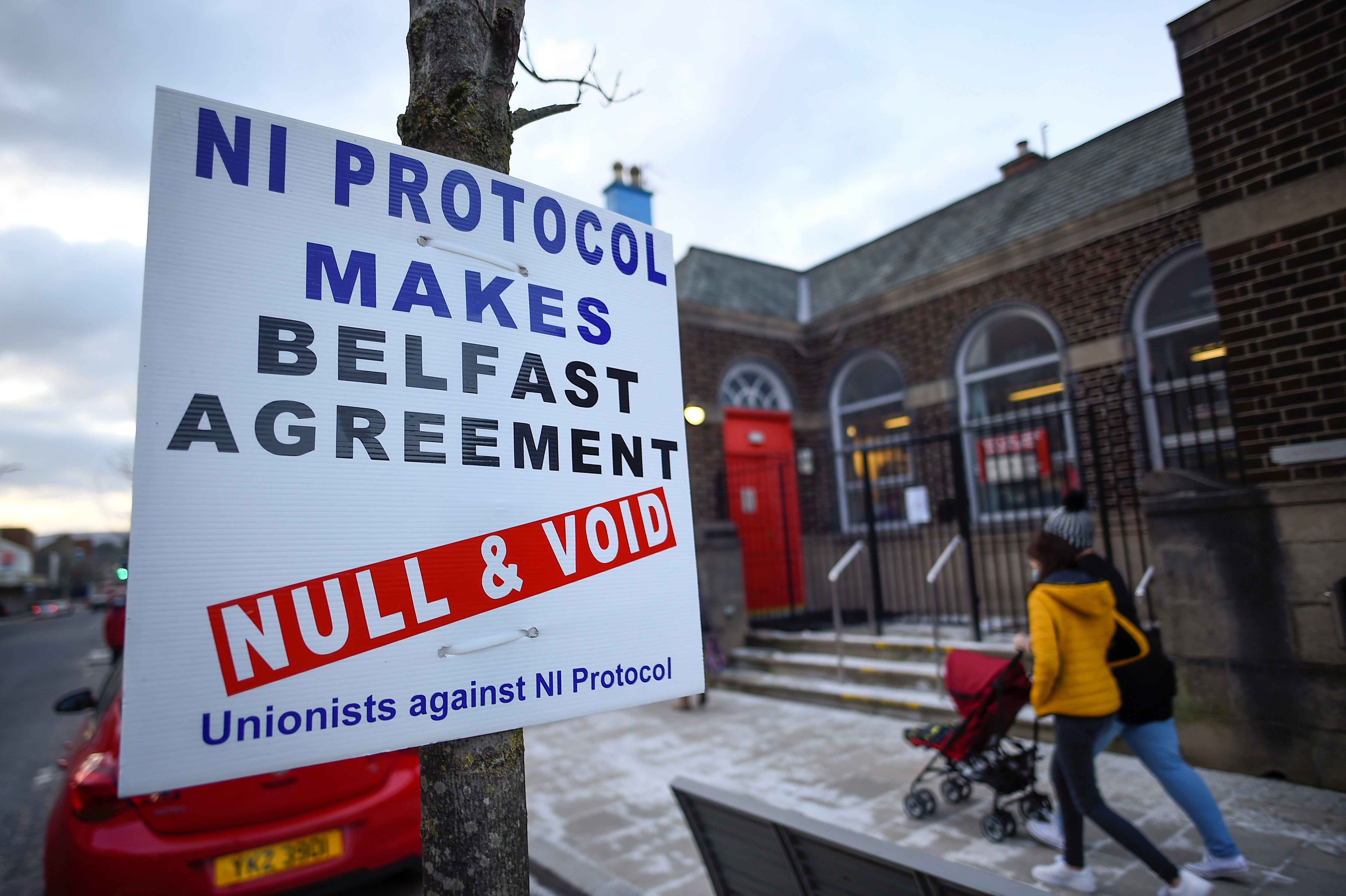Why a long Brexit delay is the best Britain can hope for
Sean O’Grady considers why the current ‘temporary’ arrangements could become the natural order


Brexit, like so many divorces, is turning nasty. Well, nastier, given that the bickering broke out almost immediately after the 2016 referendum and the atmosphere has, with rare outbreaks of goodwill, generally grown more acrimonious in the tumultuous years that followed. Brexit may or may not be “done”, in the sense that the UK has moved out of the marital home; but it is far from over. Now the lawyers are getting involved – never a good sign.
As widely expected, the EU has served notice on the UK that it will be taking it to court. The EU views the UK decision to unilaterally extend the grace period for the Northern Ireland protocol as an infringement of an international agreement. The British say it is proportionate, in good faith and to make sure things are balanced across the Irish Sea, now the subject of an economic border. It is not a robust defence in legal terms, though it may have political force.
Read more
The referral is to two courts, as it happens. The first action goes to the Court of Justice of the European Union. It no longer has jurisdiction over the UK, but it does over the 27 members states, and it matters.
The second procedure will be through the UK-EU joint committee. This is jointly chaired by Lord Frost for the UK and Maros Sefcovic for the EU. In the event that it cannot resolve the argument, the discussions will grind on in the International Bureau of the Permanent Court of Arbitration in The Hague.
Either and both of these legalistic processes will take years if allowed to drag on, which may actually suit the British, who are in no hurry to confront the Irish border question again. London may even hope that the longer the grace period extends for, then the more it will feel like the natural order of affairs. The “facts on the ground” will have altered, as everyone gets used to the unfettered movement of freight between Great Britain and Northern Ireland, whatever some court may rule in the distant future. Though damaging to Britain’s international reputation, a long delay will dampen down the tensions in Northern Ireland. If no catastrophic breach of the safety standards of the EU single market occurs in the intervening period, then the whole issue will be defused, British ministers will hope.
Maybe. But the issue, sooner or later, will need a political agreement, even if events move in Britain’s favour. This is because of the informal “linkage” that exists between the Northern Ireland protocol and all the other issues still outstanding between Britain and Europe. Fishing, checks at the Channel ports, some citizens rights, Gibraltar, financial services, security and data sharing, even vaccines... all of these and many more issues will be up for negotiation in the coming months and years. If, say, the British remain obdurate over the protocol then the EU may prove less accommodating to the City of London doing business as now with EU-based financial entities and in the euro currency.
Again like so many splits, there is hurt pride and recriminations on both sides. The British say the EU will not treat them as an equal partner, accuse the bloc of “sulking” and resent the way the EU itself clumsily suspended the protocol during a row over vaccine supply and production. The EU accuses the British of twice threatening to suspend an international treaty and generally having an unrealistic attitude to what the EU will accept. The real problem isn’t one of law, or even of politics, so much as of logic. With the UK out of the EU, a border with Ireland, an EU member state, will of necessity have to exist somewhere. If it is not down the Irish Sea, it will have to be on the island of Ireland. That, though, jeopardises another international treaty, the Good Friday Agreement. All this was known before the EU referendum was held, and the finest minds across the continent have failed to resolve it because it is a logical impossibility to square this triangle. And that is why Brexit is not over.
Join our commenting forum
Join thought-provoking conversations, follow other Independent readers and see their replies
Comments